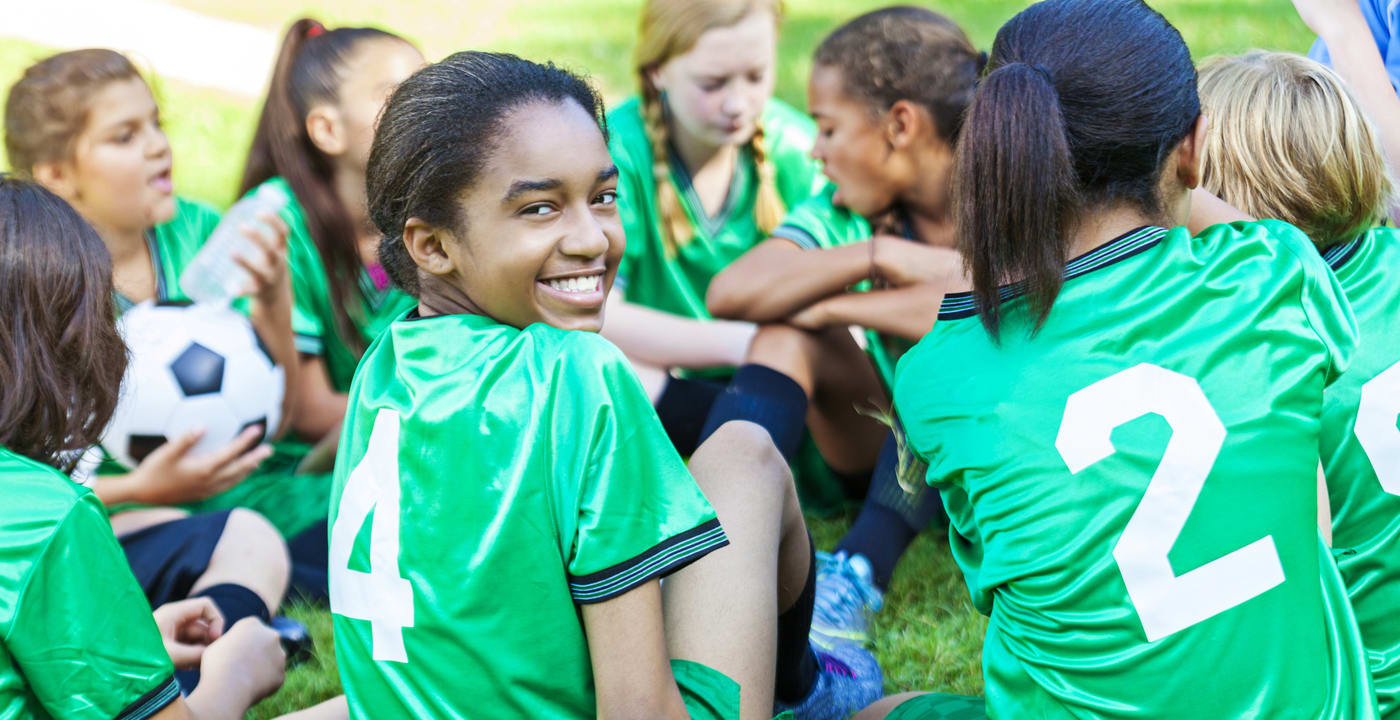Sports physicals: What to expect and why they’re important

If your child plays sports, you’re most likely familiar with sports physicals — but why are they required?
We talked to two providers at MultiCare Kent Clinic – Family Medicine to explain why they’re so valuable and where to get one.
Stephen Lu, MD, is a family medicine provider and Jake Swan, PA-C, a physician assistant specializing in family medicine.
Q: What’s the point of a sports physical?
Dr. Lu: The purpose is to make sure kids are healthy and fit to play sports, but it serves as a vehicle to explore other parts of their life as well — eating habits, sleep and how they’re doing in school and at home.
Swan: The goal is to identify any issues a child may have that may be exacerbated by participation in athletics, such as an underlying cardiovascular issue or muscle/joint problems.
Q: What happens during a sports physical?
Dr. Lu: We go through their family history and prior injuries/incidents, which helps focus the exam a bit more. Then I ask about other well-child issues such as sleep habits, which are incredibly important when playing sports. Then we do the physical exam, focusing on an individual’s specific issues.
Swan: A typical sports physical takes 30-45 minutes, depending on what’s found. We start with a questionnaire and go over past medical history in depth to identify underlying diseases or issues such as a history of seizures, asthma and so on. Next is the physical exam, where we look at all the different body systems and make sure everything’s working as it should.
Q: What things are you looking for that could prevent a student athlete from participating in sports?
Dr. Lu: We’re looking for things that stand out on their vitals, joint issues, heart murmurs (these pop up quite a bit), vision issues. For example, a vision screening might tell us a child needs glasses or contacts to catch a ball or do other things they need to do safely.
Swan: We want to make sure the child isn’t having any unnecessary headaches. Sometimes kids need glasses and we need to do an eye exam. If they’re not seeing well they may be susceptible to injuries, and we don’t want that. We look for prior concussions. I might steer kids who have had multiple concussions toward a sport with no head-to-head physical contact, such as baseball.
Q: Why are sports physicals so important?
Dr. Lu: We want to make sure kids are able to play to the best of their ability. And it’s an opportunity to really go into preventive health and catch things that might not be caught otherwise. Sometimes undetected issues can lead to negative effects under significant exertion. And it’s the opportunity for your child to ask questions about concerns you might not know they had. It’s hard being a parent, and a sports physical is just another opportunity to get a fresh perspective and potentially catch something that might impact your child’s health.
Swan: Every year a patient comes in who didn’t get a physical and ends up passing out (or worse, dying) because of an undiagnosed heart issue. We’re trying to identify anything that could become a bigger issue later on. Significant exertion can exacerbate things like heart issues or joint issues.
It’s also an opportunity to talk to kids about what to expect during sports. What’s a good pain versus a bad pain? What’s something you might expect versus something that isn’t normal and should be looked at? It’s a good idea to have that conversation with both parent and child so parents have a better understanding of what to do if their child gets hurt.
Q: Where can I take my child for a sports physical?
A: Sports physicals are offered at MultiCare Urgent Care, MultiCare Primary Care, and MultiCare Pediatrics locations.



